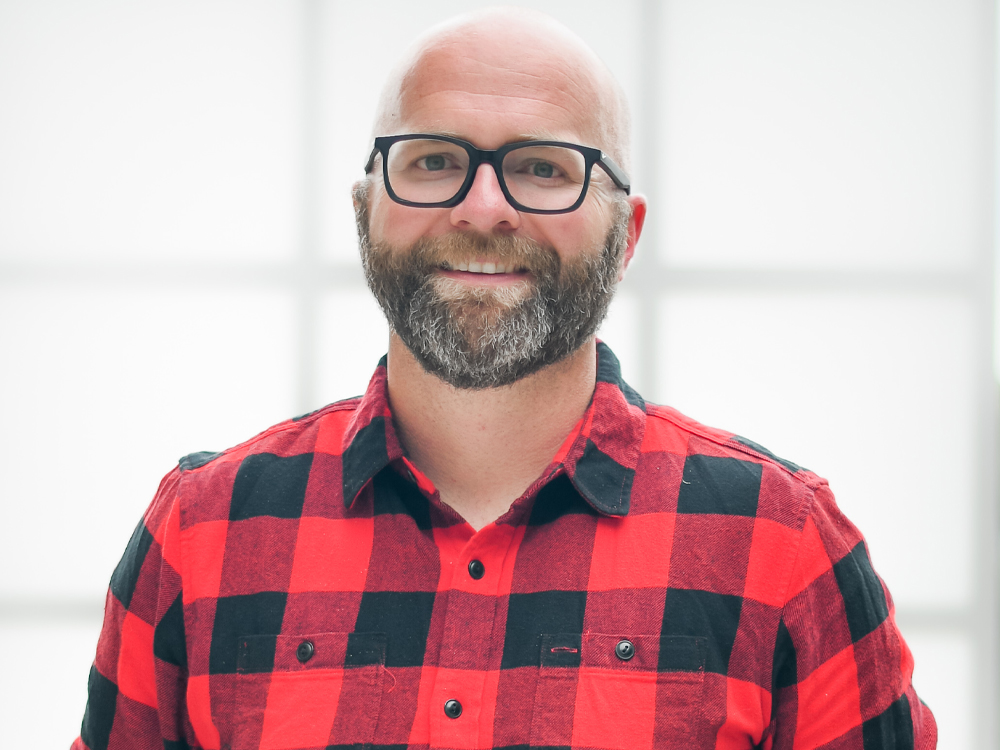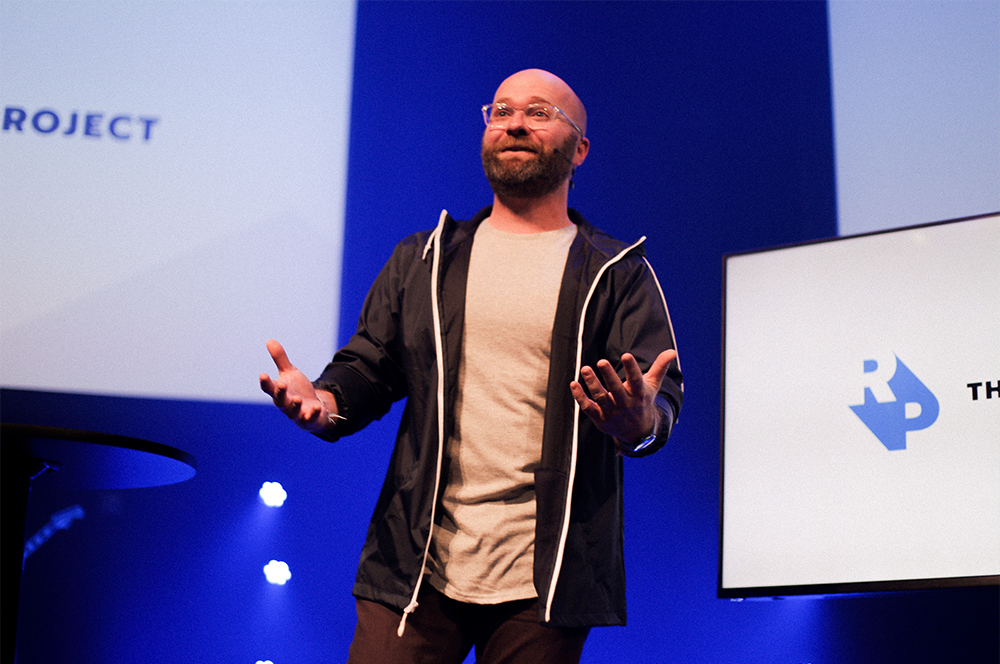Adam Weber
M.Div., Asbury Theological Seminary, 2007.
Last updated: April 3, 2023

Adam Weber, lead pastor at Embrace Church in Sioux Falls, S.D., loves God, but like most humans has sometimes struggled to love the different and difficult. After going through an incredibly difficult season, Adam found a new dimension to love. His book Love Has a Name was released August 25, 2020, and shares a bit of his journey to love those who are unseen and overlooked, highlighting specific people who have taught him a little bit more about God’s extravagant love.
As an unpopular kid in school, he always had a heart for those on the fringes. He sought for and found validation by loving others and receiving approval and acceptance in return. During what he calls “the dark night of the soul,” he felt God pruning him of the people-pleasing kind of love. After experiencing and realizing the extravagance of God’s love, Adam believes the place from which he loves is different. Now, instead of loving others to satisfy his own self-worth, he loves others with no strings attached.
“My love for Jesus is what makes me want to engage in the George Floyd conversation,” he said. “It’s because of the love of Jesus that I want to extend grace to the Pharisees. It’s the reason that I want to extravagantly love other people. It’s because of who Jesus is.”
Love Has a Name takes a look at how we can love others with the grace and truth of Jesus. Every chapter is titled with the name of a specific person who loved Adam or someone he has loved, coupled with a similar person Jesus loved. In chapter 19, Adam says that love pulls up a chair, offering a listening ear to someone who is different than you. Adam didn’t just talk about pulling up a chair; he went to downtown Sioux Falls and offered a chair to others.
He ordered pop-up desk, and after keeping it in a closet for eight or nine months, he made a deal with God. If one of two places with shade had parking, he would set up there. The second spot he had in mind was open, and Adam set up his table with two chairs, a bobble head, a plant, a picture of his wife, and a sign that said, “Need to talk, grab a seat.”
Gerald, a well-dressed man in his 50s, sat down first. He shared about his job, the awards he had received and the stress he felt. All of a sudden, he started sobbing, sharing his anxiety and panic attacks. As Gerald talked and Adam listened, Adam asked if he would like to invite God into this. They prayed together and as Gerald left, he told Adam, “If for nobody else, you are here for me.” Since then, Adam has set up his talking table more times than he can count, discovering each time that listening is a simple way to love someone else.

“So often we think it’s got to be this grand thing, and sometimes it is a grand thing,” Adam said. “We think we have got to give money, and sometimes we need to give money; we need to serve somebody. And sometimes, we do need to serve somebody, but sometimes it’s as simple as just listening to another person and hearing their story.”
Adam’s love for others isn’t singular. He equips and empowers his congregation at Embrace to love others with abandon, too. The COVID-19 pandemic has, more than ever, encouraged the Embrace congregation to exit the building and be the hands and feet of Jesus. Anyone connected to Embrace can apply for a Run Project grant up to $2,000 to do something awesome for someone outside of themselves or their family. The church has found this is a great way to partner with what is already happening in their community.
“We want to come alongside of what God’s doing in you out in the world, and we just want to help you run even faster,” Adam said.
Adams has helped with yard cleanup, flipping a teacher’s lounge, and participating in a nursing home parade. A couple of recent projects included painting a mural and offering root beer floats and prayer to people in downtown Sioux Falls. The heartbeat of this outreach is to challenge people to really obey Jesus and serve others.
“If you see an opportunity that you can help, that you can serve somebody, go do it,” Adam said. “And there’s not the, ‘Hey, put Embrace’s name all over it.’ It’s like, ‘If it comes up, sure, you can mention it.’ But the heartbeat is just to obey Jesus, so really challenging people to do that.”
Adam knew since high school that he was called to tell others about Jesus, but thought he would do that through business and marketing. His mentor presented an idea for a new kind of church, and Adam reluctantly filled in for him as pastor on Labor Day weekend in 2006. Thirty-two people attended, and Embrace was born. In 2013, Outreach Magazine named it the 40th fastest growing U.S. church, and it was the only United Methodist Church mentioned. Adam speaks at national conferences, has a blog, hosts The Conversation with Adam Weber podcast, and wrote the best-selling book, Talking With God. He and his wife Becky have four kids: Hudson, Wilson, Grayson, and Anderson.
Listen to Adam on the Thrive with Asbury Seminary Podcast!

Prepare for the Call
Learn more about how Asbury Seminary can help prepare you for your call. Fill out the form below to get started!





